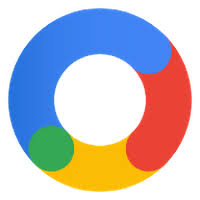Related Research Articles

Advertising is the practice and techniques employed to bring attention to a product or service. Advertising aims to put a product or service in the spotlight in hopes of drawing it attention from consumers. It is typically used to promote a specific good or service, but there are wide range of uses, the most common being the commercial advertisement.
An advertising agency, often referred to as a creative agency or an ad agency, is a business dedicated to creating, planning, and handling advertising and sometimes other forms of promotion and marketing for its clients. An ad agency is generally independent of the client; it may be an internal department or agency that provides an outside point of view to the effort of selling the client's products or services, or an outside firm. An agency can also handle overall marketing and branding strategies promotions for its clients, which may include sales as well.
WPP plc is a British multinational communications, advertising, public relations, technology, and commerce holding company headquartered in London, England. It is the world's largest advertising company, as of 2023. WPP plc owns many companies, which include advertising, public relations, media, and market research networks such as AKQA, BCW, CMI Media Group, Essence Global, Finsbury, Grey, Hill+Knowlton Strategies, Mindshare, Ogilvy, Wavemaker, Wunderman Thompson, and VMLY&R. It is one of the "Big Four" agency companies, alongside Publicis, The Interpublic Group of Companies, and Omnicom Group. WPP has a primary listing on the London Stock Exchange, and is a constituent of the FTSE 100 Index.
Nielsen Holdings plc is an American information, data and market measurement firm. Nielsen operates in over 100 countries and employs approximately 44,000 people worldwide.
Out-of-home (OOH) advertising, also called outdoor advertising, outdoor media, and out-of-home media, is advertising experienced outside of the home. This includes billboards, wallscapes, and posters seen while "on the go". It also includes place-based media seen in places such as convenience stores, medical centers, salons, and other brick-and-mortar venues. OOH advertising formats fall into four main categories: billboards, street furniture, transit, and alternative.

Advertising management is how a company carefully plans and controls its advertising to reach its ideal customers and convince them to buy.
Retail media is marketing to consumers at or near their point of purchase, or point of choice between competing brands or products. Common techniques include in-store advertising, online advertising, sampling, loyalty cards and coupons or vouchers.

Advertising media selection is the process of choosing the most efficient media for an advertising campaign. To evaluate media efficiency, planners consider a range of factors including: the required coverage and number of exposures in a target audience; the relative cost of the media advertising and the media environment. Media planning may also involve buying media space. Media planners require an intricate understanding of the strengths and weaknesses of each of the main media options. The media industry is dynamic - new advertising media options are constantly emerging. Digital and social media are changing the way that consumers use media and are also influencing how consumers acquire product information.
Account planning brings the focus on the consumer into the process of developing advertising. Planning is a job function relating to the application of strategy and planning. The discipline and its tools and techniques help to build unique directions, propositions and communications concepts across advertising and marketing channels. The Account Planner, or simply Planner, has a role to identify and empathize with the target market and utilize multiple types of data to unlock insight that creates value between the consumer, the brand and the category of Product (business) or service. The thoughts and observations are construed into a value proposition and make up a document, often called a Creative Brief, that is used to create and inspire advertising campaigns and other marketing communications.
Kantar Group is a global data, insights, and consulting company based in London, England. It was founded in 1992, and has approximately 30,000 employees in over 90 countries working in various research disciplines, including brand guidance, brand strategy, social media monitoring, advertising effectiveness, consumer and shopper behaviour, and public opinion.
Advertising research is a systematic process of marketing research conducted to improve the efficiency of advertising. Advertising research is a detailed study conducted to know how customers respond to a particular ad or advertising campaign.
In Internet marketing, search advertising is a method of placing online advertisements on web pages that show results from search engine queries. Through the same search-engine advertising services, ads can also be placed on Web pages with other published content.

Digital marketing is the component of marketing that uses the Internet and online-based digital technologies such as desktop computers, mobile phones, and other digital media and platforms to promote products and services. Its development during the 1990s and 2000s changed the way brands and businesses use technology for marketing. As digital platforms became increasingly incorporated into marketing plans and everyday life, and as people increasingly used digital devices instead of visiting physical shops, digital marketing campaigns have become prevalent, employing combinations of search engine optimization (SEO), search engine marketing (SEM), content marketing, influencer marketing, content automation, campaign marketing, data-driven marketing, e-commerce marketing, social media marketing, social media optimization, e-mail direct marketing, display advertising, e-books, and optical disks and games have become commonplace. Digital marketing extends to non-Internet channels that provide digital media, such as television, mobile phones, callbacks, and on-hold mobile ringtones. The extension to non-Internet channels differentiates digital marketing from online marketing.

Spot Runner was an American advertising and technology company. An automated web-based service, Spot Runner allowed businesses to inexpensively create and air personalized ads in their local markets through a self-service package of commercial production, media planning and ad placement without the assistance of media buyers or advertising agencies. The company was founded in 2003.
Media planning is generally outsourced and entails sourcing and selecting optimal media platforms for a client's brand or product to use. The goal of media planning is to determine the best combination of media to achieve the clients objectives.
Performance-based advertising, also known as pay for performance advertising, is a form of advertising in which the purchaser pays only when there are measurable results. Its objective is to drive a specific action, and advertisers only pay when that action, such as an acquisition or sale, is completed.
A demand-side platform (DSP) is a concept that combines various software solutions for advertisers to automate the process of buying and selling ad impressions in real time.

Google Marketing Platform is an online advertising and analytics platform developed by Google and launched on July 24, 2018. It unifies DoubleClick's advertising services and Google's own advertising and analytics services. Google Marketing Platform is mainly used by big advertisers to buy ads on the Internet.
Data-driven marketing is a process used by marketers to gain insights and identify trends about consumers and how they behave — what they buy, the effectiveness of ads, and how they browse. Modern solutions rely on big data strategies and collect information about consumer interactions and engagements to generate predictions about future behaviors. This kind of analysis involves understanding the data that is already present, the data that can be acquired, and how to organize, analyze, and apply that data to better marketing efforts. The intended goal is generally to enhance and personalize the customer experience. The market research allows for a comprehensive study of preferences.

Oracle Advertising and Customer Experience (CX) is a suite of cloud-based applications offered by Oracle Corporation that includes tools for advertising, marketing, sales, e-commerce, customer service.
References
- ↑ "A complete guide to media buying".
- ↑ Ellis, Shelley (27 August 2012). "Tools For Spying On Your Competitor's Display Ads". Martech. Marketingland/Martech. Retrieved 5 May 2023.